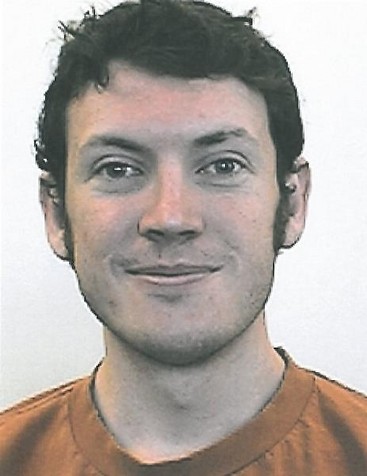Saturday July 14th, 2012 NY, NY
On July 1st 2012, after yet another fruitless negotiation session between Consolidated Edison and union representatives, the company decided to lock out all 8,500 union workers. Two weeks later, the workers are still locked out and 5,000 managers with little training have temporarily replaced them. The battle began over the 4-year union contract, which was up for renewal. Con Edison wanted to make changes to the contract that the union was not fond of; reducing medical care and changing pensions to a cash balance plan are the two that seemed to have the most workers up in arms.
Many news outlets have omitted this story from the news cycle completely, and those that do cover it do not do so in any meaningful detail. If only out of my own curiosity, I went down to talk to some of the union members on “picket duty” in New York yesterday and learned a great deal.

The immediate concern of the union at this point is that a deal on the contract be reached that does not compromise the beliefs of the union and the needs of its members. This would preferably be done soon, as they are not being paid at the moment. Many members have already applied for part-time jobs because of this. The two main problems with the contract that the union has are the cutbacks in health care and the change in the pension plan. The reason why a Con Ed worker would need solid health care became even more apparent through explanations of the incredibly heavy uniforms that must be worn in the summer, which often lead to “sweat pouring out of the rubber gloves”, and the lack of insulation these uniforms offer in the winter. And, of course, the job of a Con Ed field worker can be dangerous. Said one man, “Everything we work on is live–this way, we don’t need to take a whole block out [of power] to do a small repair”. While this certainly provides convenience for Con Edison customers, it does increase the risk of electrocution for the workers. Concerning the pensions, the previous contract had a traditional pension plan that Con Ed now wanted to change to a cash balance pension plan. The difference between the two is described as such by the United States Department of Labor:
Traditional defined benefit plans define an employee’s benefit as a series of monthly payments for life to begin at retirement, but cash balance plans define the benefit in terms of a stated account balance. These accounts are often referred to as “hypothetical accounts” because they do not reflect actual contributions to an account or actual gains and losses allocable to the account.
(For more information on cash balance plans, here is the link to the Department of Labor’s FAQ page: http://www.dol.gov/ebsa/FAQs/faq_consumer_cashbalanceplans.html )
As to any animosity towards the company, one man said, “I don’t blame them [Con Ed]. This is a business making business decisions.” He went on to say that he did not think the decision to cut health care was one made out of malice, but rather frugality. However, he noted “the company has been bragging about $11 million profits*…and we want to be fairly compensated for our work. It’d be nice if we could get reasonable compensation [for such] a dangerous job.” And speaking of a dangerous job, how are 5,000 management workers going to do the work of 8,500 union employees? Not very well, the same man said. “First of all, if these guys ever had any training at all, it was years ago. Con Ed has management, many of whom are older, doing 6-day shifts. [Their being out of practice] will significantly impede their ability to perform.” He described in detail the amount of time and work it takes to train one union employee to work in the field. In most cases, the training process takes years and is done through a graduated system. But the training Con Edison has given to these 5,000 management workers? “It’s a crash course, for the most part.” Taking a step back from his explanation, the man looked up. “The company is playing it a little on the dangerous side regarding management.”
When it came to updates on the story, one worker said, “we’re as much in the dark as the public is” (the union’s website did note that as of today, Saturday the 14th, Con Edison has agreed to reinstate health insurance retroactive to July 1st, when the workers were first locked out). Because of the lack of media coverage on the shut out, the union does want to make one thing clear: this is a shut out by Con Edison, not a union-led strike. And as much fun as the 16 hours a week on “picket duty” may seem to those who are not part of the Local 1-2 Utility Worker’s Union, that same man summed up his own feelings nicely: “I just hate being here. We’re not getting paid.”
Despite its obvious importance to New Yorkers in the days before an incoming heat wave, this story also has significance in the politics of modern labor. In 2011 only 6.9%1 of private-sector unions were unionized, as opposed to 35% in the mid 1950s2. And while public-sector unionization has increased, one cannot ignore the recent increase in political support for Right to Work laws (laws that make it very difficult for unions to exist), like Scott Walker’s infamous SB 11 in Wisconsin.

States with Right To Work Laws in effect (either by way of legislation or the state constitution)
Where does this comparatively small labor fight fit in? The main take-away from this shut out is lack of media attention to the issue. Surprisingly, even local news has not been investigating much into the matter, although many New Yorkers may find themselves out of power as the heat rises. Lack of coverage of small disputes like this one helps to keep unions hidden from the public view. And in a country where labor is not on the mind of the everyday American, bills like Wisconsin’s SB 11 are much more easily developed, passed, and set into motion.
News media have a responsibility to inform the public on information that affects them, and with the modern implications that disputes like this have, I strongly suggest they start investigating.
Sources:
1. http://www.bls.gov/news.release/union2.nr0.htm
2. http://www.nytimes.com/2012/03/01/opinion/a-civil-right-to-unionize.html
*The following sources reference a $1-1.1 billion profit for Consolidated Edison (2011):
http://mycrains.crainsnewyork.com/blogs/greg-david-on-ny/2012/07/is-con-eds-1b-profit-a-sign-of-greed-no-way/
http://www.lohud.com/article/20120704/NEWS/307040055/Con-Ed-workers-call-bosses-greedy-1-200-without-power-Armonk






















